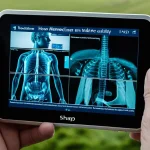Rapid Response and Emergency Preparedness in UK Healthcare
Effective emergency preparedness is the backbone of managing sudden health crises within the UK health system. This involves implementing robust emergency protocols tailored to emerging health threats. In practice, these protocols establish clear chains of command, streamlined communication channels, and predefined roles for all healthcare professionals, enabling swift, coordinated actions when minutes count.
A critical element of rapid response readiness is the comprehensive training of staff for real-time crisis and scenario management. Healthcare workers undergo regular simulations of potential emergencies—from infectious disease outbreaks to natural disasters—to build confidence and proficiency. This hands-on preparation ensures that teams can rapidly assess situations and make decisive interventions, minimizing patient risk.
In parallel : Are Health Professionals in the UK Prepared for Future Public Health Crises?
Moreover, the UK health system places strong emphasis on leveraging lessons learned from recent health emergencies. Post-event analyses are systematically conducted to identify strengths and weaknesses in response efforts, guiding improvements in protocols and training programs. This continuous learning cycle fosters resilience, enabling the NHS and allied services to better anticipate and handle future challenges with greater agility and effectiveness.
Strengthening Collaboration Across Health Sectors
Effective multidisciplinary teamwork is essential for managing health crises with agility and precision. Integrated teams that draw expertise from various disciplines enable a comprehensive crisis response, addressing complex patient needs without delay. These teams combine clinical, social, and administrative professionals, promoting a holistic approach in real time.
Also read : What are the key strategies for UK health professionals to enhance patient engagement?
Facilitating intersectoral collaboration ensures that organizations such as the NHS, local authorities, and social care providers work in tandem rather than isolation. This cooperative framework improves decision-making and resource allocation, enabling quicker, more coordinated actions. Collaborative initiatives might include joint task forces that streamline communication channels, clarify roles, and unify procedures that enhance readiness for emergent health threats.
Data sharing and resource pooling between sectors are pivotal for a unified approach during emergencies. Secure platforms and established protocols allow for timely, accurate exchange of crucial information across NHS partnerships and public health coordination agencies. This sharing bolsters surveillance, optimizes resource distribution, and helps prevent duplication of efforts, ultimately safeguarding public health more effectively.
Utilising Technology and Innovation in Health Crisis Management
The integration of digital health technologies has become essential for effective health crisis management. One critical aspect is the expanding use of telemedicine, which ensures continuity of care even when physical access to healthcare facilities is limited. Telemedicine platforms enable patients to consult healthcare providers remotely, minimizing exposure to contagious diseases while maintaining treatment for chronic conditions and urgent health needs.
Moreover, leveraging health data analytics allows authorities to track disease progression and predict outbreaks with greater accuracy. Real-time analysis of diverse datasets—including hospital admissions, laboratory reports, and mobility patterns—provides actionable insights. This data-driven approach supports targeted interventions, resource allocation, and timely public health responses, which are crucial during evolving crises.
Innovative tools are also being piloted to enhance public health monitoring. These include digital contact tracing apps, wearable health devices, and AI-powered diagnostic systems, all designed to facilitate rapid detection and intervention. Through technological innovation in health crisis management, decision-makers can respond more swiftly and effectively, ultimately improving population health outcomes during emergencies.
Updating Policies and Frameworks for Emerging Threats
Adapting health policy to effectively combat emerging threats requires regular review and revision of existing protocols. Traditional frameworks often fall short when new, unforeseen health crises arise. Therefore, updating governmental guidelines is essential to ensure they remain relevant and responsive to current challenges. This involves assessing whether current policies adequately support rapid decision-making processes and the efficient allocation of resources in urgent situations.
Regulatory adaptation is another critical aspect. Regulations must be flexible enough to facilitate accelerated responses without compromising safety and efficacy. This means enabling authorities to implement interventions or deploy resources quickly when a health threat emerges. Review processes that integrate input from various stakeholders—such as healthcare professionals, policymakers, and community representatives—help maintain the crisis frameworks’ relevance and practicality.
By actively engaging stakeholders in revising policies, governments can design adaptive frameworks that balance innovation with compliance. This approach promotes a dynamic health governance environment that can anticipate and mitigate the impact of emerging threats more effectively.
Case Studies and Evidence-Based Approaches
Understanding case studies is crucial for designing robust healthcare strategies. By examining detailed examples, we can identify best practices that have demonstrated success in real-world settings. The NHS’s response to pandemics, for instance, provides insightful evidence-based interventions that have shaped how healthcare professionals manage crises.
During recent UK healthcare challenges, including pandemics and antibiotic resistance, NHS efforts relied heavily on evidence from previous outbreaks to inform decision-making. These case studies revealed the importance of swift action, resource allocation, and inter-agency collaboration.
Mental health intervention models offer another valuable example. In crisis conditions, implementing tailored, evidence-based interventions has significantly improved patient outcomes. These models stress early identification and community-based support, drawing from UK incidents where timely mental health care helped reduce long-term impacts.
Applying lessons from past UK incidents bolsters current preparedness plans by grounding strategies in tested approaches. This reinforces the healthcare system’s resilience and ensures that responses are informed by the best available evidence, minimizing uncertainty in future emergencies.



